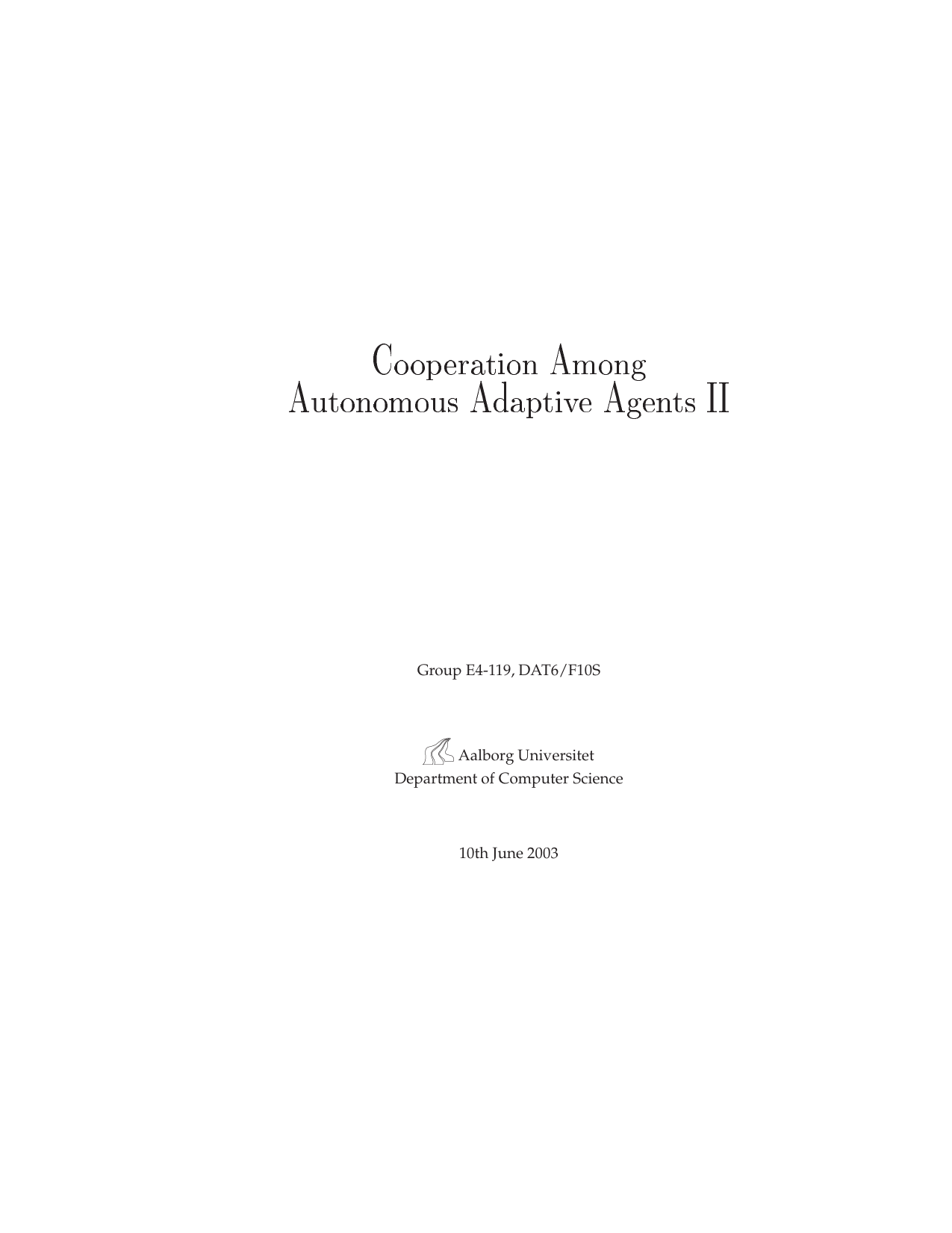
Cooperation Among Autonomous Adaptive Agents II
Translated title
Term
4. term
Education
Publication year
2003
Submitted on
2012-02-14
Abstract
This report documents the work and findings on using Strongly Typed Genetic Programming to evolve cooperative behavior of autonomous agents. We devise and implement a method for maintaining diversity allowing our multiobjective co-evolution to proceed without converging prematurely. A problem with noise is alleviated through the introduction of a modification to Competitive Fitness Sharing. In order to efficiently track progress in our co-evolutionary runs we conceive and utilize an objective measure of evolutionary progress. The project has two primary goals. The first goal is to investigate whether cooperating agents can produce better results than non-cooperating agents solving the same problem. Tests in our extended pursuit environment with varying degrees of communication are performed. Results show that predators able to communicate evolve much better and more robust solutions against difficult prey than predators unable to communicate. The second primary goal is to design and evaluate a method to avoid the phenomenon of disengagement which can occur in competitive co-evolution. Our method - named the Interleaved Approach - is compared with approaches found in literature and determined to be superior in the used environment. The Interleaved Approach is also compared with the regular co-evolutionary approach as well as single evolution. The Interleaved Approach outperforms both approaches.
Documents
